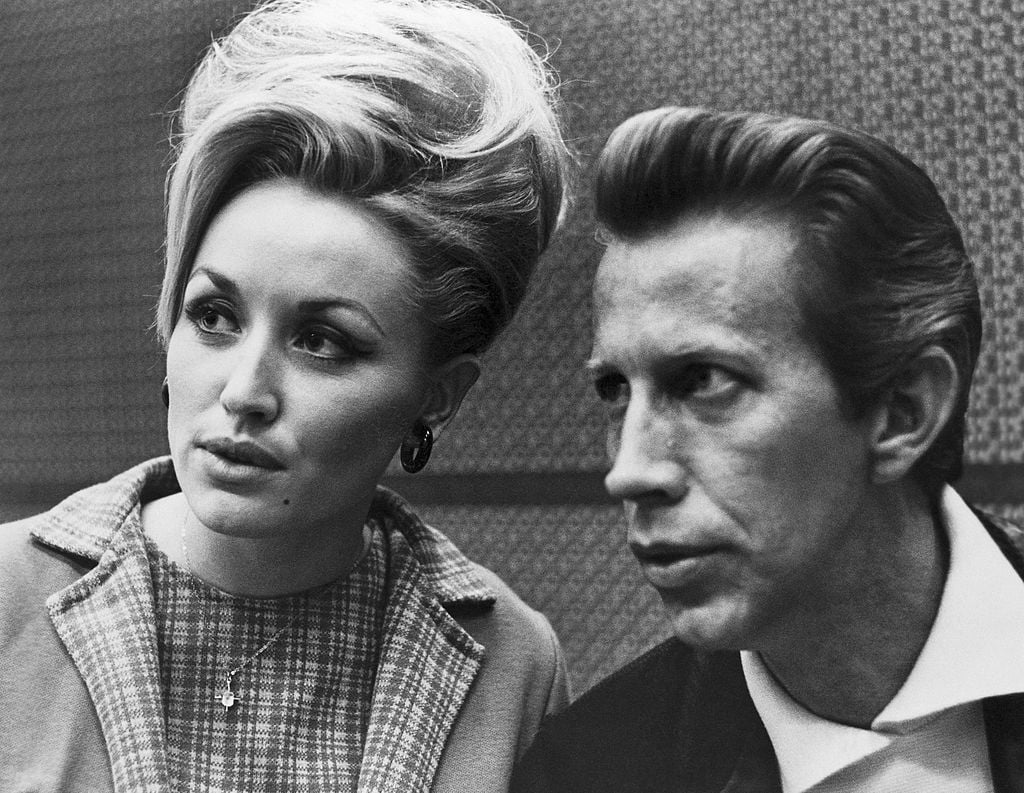
Dolly Parton Felt ‘Humiliated’ Advertising This Product on ‘The Porter Wagoner Show’
Dolly Parton joined The Porter Wagoner Show in 1967. She replaced Porter Wagoner’s former “girl singer” named Norma Jean Beasler. While Parton felt mostly ecstatic about her new gig (she was making more money than she’d ever seen in her entire life), there was one part she wished she could give back to Norma Jean—the commercials.
Some of ‘The Porter Wagoner Show’ advertisements weren’t so bad
Part of Parton’s job as Wagoner’s girl singer was to film the live commercials for the sponsors of the show. Overall, the “Jolene” singer wasn’t a fan of this duty.
“I would have gladly stepped aside to make way for Norma Jean’s temporary return when it came to the live commercials,” wrote Parton.
Some of the advertisements weren’t so bad.
“I didn’t mind telling folks about ‘the flowery towels in boxes of Breeze’ (in my mountain dialect it came out ‘flardy tals’),” wrote Parton. “After all, I had hawked Blue Band Coffee on The Cas Walker Show. I could also smile with some degree of believability while pushing Soltice, a cold remedy or ‘croup salve’ as we called it.”
The commercials Dolly Parton hated
But the commercials that “almost kill[ed] [Parton] with humiliation” were the ones the singer did for Cardui.
“I know the Chattanooga Medicine Company was a loyal sponsor of the show and its support ultimately paid me, but that did not make it any easier for a young woman to go on TV and talk about ‘menstrual cramps’ and ‘water bloat,’” wrote Parton. “My face must have turned colors, even in black and white.”
The other product Parton didn’t like advertising was Black Draught.
“This was a laxative that made you ‘Smile from the inside out’ according to the song,” wrote Parton. “I hope my colon was smiling sincerely because the smile on my lips was phony as all get out.”
How Parton spent her advertising money
The “Two Doors Down” singer didn’t like the advertising part of her job, but they did pay the bills—more than the bills, actually.
“The jingles were sung, the smiles were faked, and the checks were cashed,” wrote Parton. “Try to imagine what sixty thousand dollars represented to a young woman who had grown up in poverty in the Smoky Mountains. It was a world of money. It was probably more than my daddy had earned in his lifetime. I did act kind of silly with it at first. The joke is that the hick who strikes it rich always goes out first thing and buys a Cadillac. So did this hick. I still like Cadillacs. I guess I’m just a Cadillac kind of girl.”
Parton also spent some money on her family—she redid her parents’ modest house.
“I don’t remember what story we told my parents to get them out of the house for the day,” wrote Parton. “Whatever it was, they fell for it. That left the way open for me, with the help of brothers and sisters, to work a minor miracle in the house while they were out. I had bought all new furniture, carpet, and curtains for the house, and we completely redid the place that day.”


